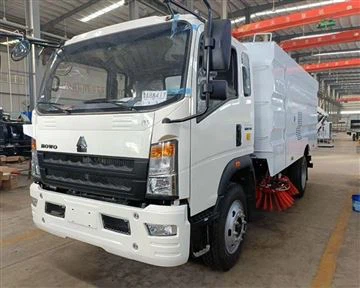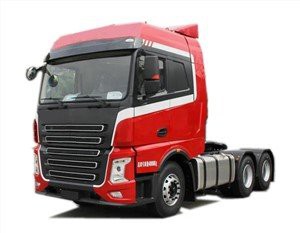Understanding Waste Collection Trucks: The Backbone of Municipal Waste Management

Waste collection trucks play a vital role in maintaining public health and environmental sustainability. As cities expand and populations grow, the need for effective waste management solutions becomes increasingly critical. This article will dive into the intricacies of waste collection trucks, their types, operational procedures, maintenance, and the future of waste management. Whether you’re a city planner, a waste management professional, or just someone interested in this essential service, you will find valuable insights here.
What is a Waste Collection Truck?
A waste collection truck is a specialized vehicle designed to collect and transport waste materials from residential and commercial areas to disposal or processing facilities. These trucks come in various sizes and types, equipped with features tailored to the waste they collect, ensuring efficiency and safety in waste management.
Types of Waste Collection Trucks
1. Front Load Trucks
Front-load trucks are commonly used for commercial waste collection. These trucks have a hydraulic system that raises the front container, allowing the waste to be emptied into the truck’s compartment.
Advantages:
- High capacity suitable for large bins.
- Efficient for quick pick-ups.
Disadvantages:
- Less maneuverable in tight residential areas.
- Higher operational costs due to hydraulic systems.
2. Rear Load Trucks
Rear-load trucks are designed for residential waste collection. They feature a compaction system that allows waste to be compacted as it is loaded into the truck.
Advantages:
- Efficient for curbside collection.
- Good for compacting waste, maximizing space.
Disadvantages:
- Slower operation compared to front-loaders.
- More physically demanding for drivers.
3. Side Load Trucks
Side-load trucks are known for their ease of use in residential areas. They utilize a robotic arm to pick up bins from the side of the truck.
Advantages:
- Enhanced safety for workers.
- Automated operations increase efficiency.
Disadvantages:
- Higher initial cost due to automation technology.
- Requires more maintenance.
4. Roll-Off Trucks
Roll-off trucks are used for large waste containers, often at construction sites or during large clean-out projects. They transport open-top containers that can be rolled off the truck.
Advantages:
- Ideal for large volumes of waste.
- Offers flexibility for various waste types.
Disadvantages:
- Not suitable for regular residential waste collection.
- Requires special training for operators.
How Waste Collection Trucks Operate
Collection Schedule
Most waste collection trucks operate on a fixed schedule, collecting waste weekly or biweekly in residential areas. This helps keep neighborhoods clean and minimizes the risk of waste accumulation.

Loading Process
The loading process may vary depending on the truck type:

- Front-load: The driver operates the hydraulic lift to empty the container into the truck.
- Rear-load: Workers manually load the waste into the back of the truck, often tossing bags and items into the lift.
- Side-load: A robotic arm picks up bins and tips them into the truck.
Compaction and Transport
Once the waste is loaded, the compaction system compresses the waste to maximize space and prevent odors. After loading, the truck transports the waste to designated landfills or recycling centers for disposal.
Key Technologies in Waste Collection Trucks
1. GPS and Route Optimization
Modern waste collection trucks are equipped with GPS technology, enabling efficient route planning. This reduces fuel consumption and increases operational efficiency.
2. Smart Sensors
Smart sensors in trucks can detect bin fullness, allowing for more responsive collection services. This technology leads to efficient resource allocation and cost savings.
3. Eco-friendly Alternatives
Electric waste collection trucks are emerging as an eco-friendly alternative to traditional diesel models. They help reduce carbon emissions and improve air quality.
Maintenance of Waste Collection Trucks
Proper maintenance is essential to ensure the longevity and efficiency of waste collection trucks. Maintenance includes:

1. Regular Inspections
Scheduled inspections help identify issues before they become significant problems. Checking hydraulic systems, brakes, and tires is critical for operational safety.
2. Lubrication and Fluids Management
Regular lubrication of moving parts and timely replacement of engine oils and fluids keep the truck running smoothly.
3. Cleaning and Waste Management
| Task | Frequency |
|---|---|
| Exterior Cleaning | Weekly |
| Interior Cleaning | Monthly |
| Waste Compaction Inspection | Monthly |
Practical Tips for Waste Management with Collection Trucks
1. Implementing Recycling Programs
Cities should implement integrated recycling programs that allow waste collection trucks to collect recyclables separately. This minimizes landfill waste and promotes recycling efforts.
2. Community Engagement
Engaging local communities about proper waste disposal and recycling can enhance participation rates and improve overall waste management.
3. Regular Training for Drivers
Ensuring that drivers are regularly trained on safe operational practices and efficient waste collection techniques will promote safety and performance.
The Future of Waste Collection Trucks
The future of waste collection trucks relies on innovation and sustainability. Here are a few emerging trends:
1. Automation
The trend towards fully automated waste collection systems may significantly reduce operational costs and improve safety through the elimination of manual handling.
2. Data Analytics
Utilizing data analytics to predict waste generation patterns can help in optimizing collection routes and schedules, enhancing overall waste management efficiency.
3. Sustainable Materials and Design
As sustainability becomes a priority, manufacturers are focusing on developing waste collection trucks made from recyclable materials and designed for energy efficiency.
FAQ Section
1. How often do waste collection trucks operate?
Most waste collection trucks operate on a scheduled basis, typically weekly or biweekly, depending on the local waste management plan.
2. What waste can be collected by these trucks?
Waste collection trucks generally collect general household garbage, yard waste, recyclables, and some commercial waste. Special arrangements can be made for hazardous waste.
3. How can communities improve waste collection efficiency?
Communities can enhance waste collection efficiency by implementing recycling programs, educating residents on proper waste disposal, and adopting smart technologies for tracking waste generation.
4. Are there alternatives to traditional waste collection trucks?
Yes, electric and hybrid waste collection trucks are becoming popular alternatives to traditional diesel-powered trucks, providing a more environmentally-friendly option.
5. Can I complain about missed collections?
Residents should contact their local waste management authority to report missed collections, which can help ensure timely resolutions.
6. What are the safety measures for drivers of waste collection trucks?
Drivers are trained on various safety measures, including operating the truck, securing loads, and how to deal with hazardous materials, ensuring their safety and that of the public.
